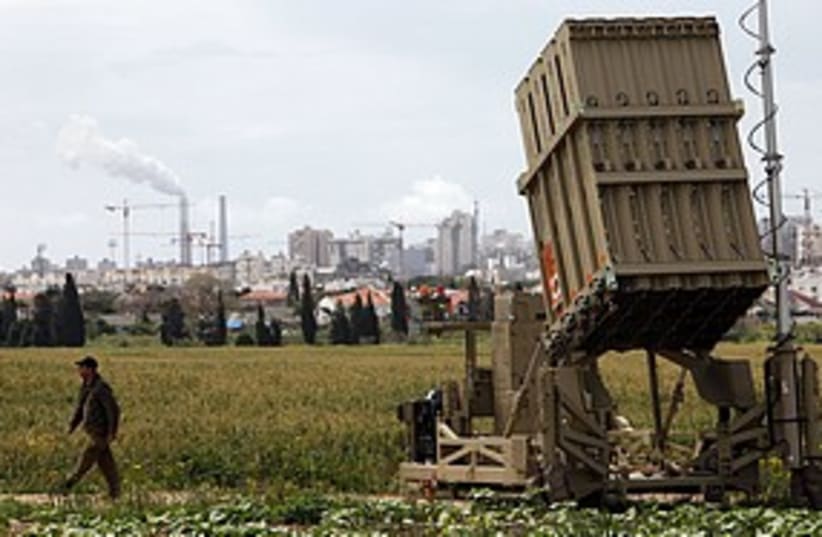Another potential client is South Korea, which is interested in using the system to defend against rocket attacks from North Korea.Israel currently has three Iron Dome batteries deployed in the South. They have intercepted a number of rockets since the beginning of the year including during the recent round of violence with Islamic Jihad in late October.Iron Dome is designed to defend against rockets at a range of 4 to 70 km., and each battery consists of a multi-mission radar manufactured by Israel Aerospace Industries and three launchers, each equipped with 20 interceptors named Tamir.By the end of 2012, Barak said Israel would have nine operational Iron Dome batteries including thousands of Tamir interceptors. Each interceptor costs about $50,000 and a battery around $50 million.Two rockets are usually fired at enemy targets slated for interception.Earlier this year, the US Congress gave Israel $205 million to purchase four more Iron Dome batteries.In August, Rafael announced it was partnering with Raytheon to market the Iron Dome in the US. The system is said to be capable of working together with the US Army’s Counter Rocket, Artillery and Mortar (C-RAM) system as part of a layered defense for military bases.
US may purchase Iron Dome batteries
Army expresses interest in the system for deployment outside US bases in Iraq, Afghanistan; S.Korea is also interested.

Another potential client is South Korea, which is interested in using the system to defend against rocket attacks from North Korea.Israel currently has three Iron Dome batteries deployed in the South. They have intercepted a number of rockets since the beginning of the year including during the recent round of violence with Islamic Jihad in late October.Iron Dome is designed to defend against rockets at a range of 4 to 70 km., and each battery consists of a multi-mission radar manufactured by Israel Aerospace Industries and three launchers, each equipped with 20 interceptors named Tamir.By the end of 2012, Barak said Israel would have nine operational Iron Dome batteries including thousands of Tamir interceptors. Each interceptor costs about $50,000 and a battery around $50 million.Two rockets are usually fired at enemy targets slated for interception.Earlier this year, the US Congress gave Israel $205 million to purchase four more Iron Dome batteries.In August, Rafael announced it was partnering with Raytheon to market the Iron Dome in the US. The system is said to be capable of working together with the US Army’s Counter Rocket, Artillery and Mortar (C-RAM) system as part of a layered defense for military bases.